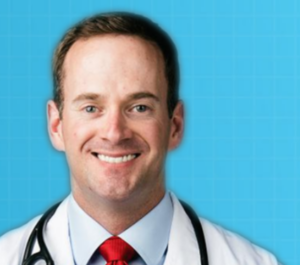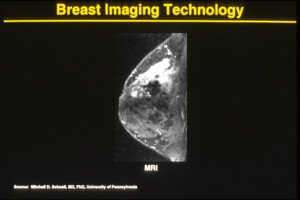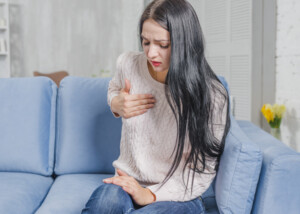Ever wonder if a natural cancer cure might exist? Such as in the form of diet?
Breast cancer survivor Ruth Heidrich believes so.
She was diagnosed with metastatic breast cancer 35+ years ago at the age of 47.
Heidrich had refused chemotherapy and radiation, despite bone scans showing that the breast cancer had spread to both femur (thigh) bones and pelvis. An X-ray revealed the cancer was also in one of her lungs.
This interview is strictly meant to accurately present what Heidrich told me; hence, this post falls under the category of interview, not medical advice.)
Ruth Heidrich discovered a lump in her breast during a breast self-exam. Cancer was confirmed after a physician performed an excisional biopsy (surgery).
Prognosis?
It was so serious that I got second, third and fourth opinions. No doctor could tell me if I had three months, three years, or what. The oncologists all recommended chemo, radiation and tamoxifen.
Before diagnosis, what were your eating habits?
I thought that, since I had studied nutrition during college, I was eating the healthiest diet possible, although it was actually sad: the Standard American Diet.
I had virtually cut out red meat, increasing my fish and chicken intake to compensate for the animal protein which I mistakenly thought was needed, and drank a lot of powdered skim milk, again, mistakenly thinking this would make my bones strong.
Actually, as scientific studies show, animal products are not any healthier at all, and in fact were most probably the cause of my breast cancer!
Why did you shun chemotherapy?
Two weeks after my cancer diagnosis, I spotted an announcement in the newspaper, which was for a clinical research study to investigate the validity of the low-fat vegan diet versus standard chemo/radiation to reverse cancer.
I literally ran to the phone and found myself speaking to the study’s head researcher, John McDougall, MD.
When I got to his office, he showed me the bleak results of conventional medical treatment, and I then decided to enroll.
This study involved what?
I had to agree to switch my diet to low-fat vegan, that is, 100% plant foods. This meant no animal foods at all and no added oils.
I went home and began this diet within two weeks from the biopsy with its horrible diagnosis.)
Did you inform the doctor who diagnosed you what your plans were?
Yes, and he just shook his head in disgust, saying that “Diet has nothing to do with breast cancer.” I knew better because I had seen the scientific studies demonstrating otherwise.
After you started this diet, how much time went by before you returned to the diagnosing doctor to check if the cancer still was there?
It was a matter of just weeks. The initial bone scan with the “hot spots” was two weeks following diagnosis.
A month later, those “hot spots” had significantly receded, and within three months, they were completely gone.
The chest X-rays, however, to this day still show the encapsulated tumor that’s in my left lung; it hasn’t grown in 25 years.
How was the cancer in your breast determined to be gone?
After that first biopsy revealed no clear margins (they hadn’t gotten all the cancer), I had more surgery. (the excisional biopsy was an attempt to get the whole thing out.
A modified radical mastectomy was determined to be needed because the cancer had also spread throughout the breast as well as the bones and lung. realize, it’s not cancer in breast tissue that kills you — it’s cancer cells that metastasize to vital organs, usually the bones, LIVER, lungs, and brain. All of the follow-up tests continue to show no recurrence of the cancer.
When the bone cancer disappeared, how did the physicians react?
They had no explanation for how this happened and told me that my new diet couldn’t have any effect on the spread of the cancer, that I was taking a risk in continuing to refuse chemo and radiation.
Using a layperson’s perspective, explain why the cancer doctors did NOT get excited about your situation and did not tell their colleagues.
All MDs go through fairly standard training and are usually taught that diet does not cause cancer, and therefore, certainly can’t cure or reverse it, that only chemo, radiation, or hormone manipulation can treat it.
Of course, the pharmaceutical companies stand by, always ready to supply the chemo and hormone blockers. A physician who “dares” try anything different, such as dietary manipulation only, violates a code or “community standard of practice.”
Therefore, even if an MD believes it could work, he or she takes a big risk in going against conventional medical protocols.
Another factor to consider, and I’m sure that Dr. McDougall will agree with, is that MDs and drug companies will not make any profit treating cancer this way. Actually, I think our health care industry would dissolve if people went vegan!
Do you stand to get any financial gain by fabricating any of this?
I don’t have anything to gain financially — fact is, I’ve invested a great deal of energy, time, and gas, visiting cancer patients, giving talks, getting on the radio, and writing books — all to little or no avail.
Ever considered submitting your medical documentation to various medical or cancer organizations?
If even physicians like John McDougall, Michael Klaper, Neal Barnard, Michael Greger, Terry Shintani, and more., and even one of the most widely respected nutrition scientists in the world, T. Colin Campbell, PhD, can’t convince them, I myself really don’t stand much of a chance.
I’ve also approached the Susan G. Komen Foundation and American Cancer Society, and got nowhere because they rely on the mainstream medical approach.
**********
A point to consider: Technically, a vegan is someone who avoids all animal-derived foods, but doing such doesn’t always mean a healthy diet, if this “vegan” consumes a lot of sugar, processed refined food, additives, preservatives and artificial sweeteners.
Heidrich has to her credit more than 900 trophies from multitudes of athletic competitions, including Ironman Triathlons, Half Ironmans, and dozens of marathons and ultra-marathons.
She has won eight gold medals from state and national level Senior Olympics, and is the author of three books.
“Ms. Heidrich’s story illustrates the importance of nutrition when fighting cancer,” says Jonathan Stegall, MD, an integrative oncologist and medical director for The Center for Advanced Medicine, an adult cancer treatment center in Alpharetta, GA.
“We have a significant amount of research showing that nutrition is important for patients with cancer as well as for those who want to prevent cancer.
“There are other stories of patients who have beaten cancer relying mostly or exclusively on nutrition.
“However, it is important to note that these patients are very rare. So while I acknowledge that it’s possible to cure cancer with diet alone, it isn’t very likely.
“Consider someone who wants to accumulate wealth. One way to do that is to buy a lottery ticket.
“Some people have gotten rich by winning the lottery, so it’s possible – but it isn’t likely.
“In fact, it’s a poor choice for accumulating wealth, since there are many other approaches which have proven to be more effective.
“Similarly, solely relying on nutrition to beat cancer is a poor choice, since we have many other treatments which have been shown to be more effective.
“I share Ms. Heidrich’s passion for nutrition, and believe that it is a very important aspect of cancer treatment.
“For example, I put all of my patients on a plant-based eating plan, and provide recipes as well as advice on fasting.
“But I also want to caution people that as important as nutrition is, it should never be the focus of their cancer treatment plan.
“This is where integrative oncology really shines, where we strategically combine conventional treatments such as surgery, chemotherapy and radiation with evidence-based natural therapies such as nutrition, supplementation, stress reduction therapies, lymphatic therapy, mistletoe, etc.”
Ruth E. Heidrich
RuthHeidrich.com
Author of “CHEF,” “A Race for Life,” and “Senior Fitness”
 Jonathan Stegall, MD, provides a long-awaited remedy for our cancer problem. Having a successful integrative oncology practice in Atlanta, GA, he’s seen firsthand what works and what doesn’t with cancer treatment. Dr. Stegall is the creator of the Cancer Secrets Podcast and author of “Cancer Secrets,” available on Amazon.
Jonathan Stegall, MD, provides a long-awaited remedy for our cancer problem. Having a successful integrative oncology practice in Atlanta, GA, he’s seen firsthand what works and what doesn’t with cancer treatment. Dr. Stegall is the creator of the Cancer Secrets Podcast and author of “Cancer Secrets,” available on Amazon.
 Lorra Garrick has been covering medical, fitness and cybersecurity topics for many years, having written thousands of articles for print magazines and websites, including as a ghostwriter. She’s also a former ACE-certified personal trainer.
Lorra Garrick has been covering medical, fitness and cybersecurity topics for many years, having written thousands of articles for print magazines and websites, including as a ghostwriter. She’s also a former ACE-certified personal trainer.
.



























